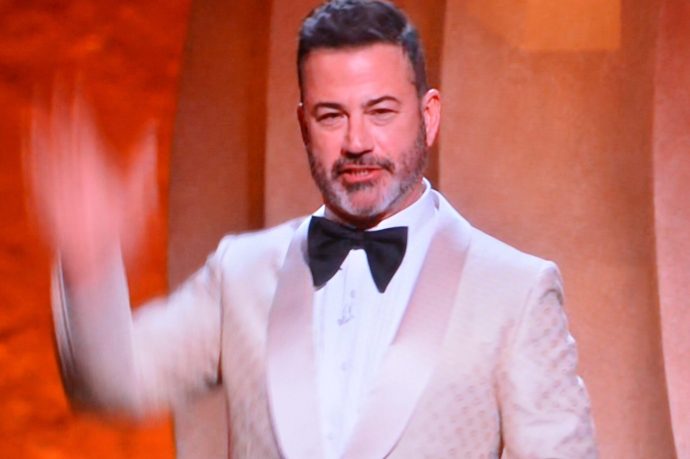Sunday, March 10th was Oscar Night, one of the most widely anticipated shows of the year. The Academy Awards gives credit for artistic or technical achievement in the film industry and is watched by billions worldwide. Although it is often criticized for being too long and overly commercialized, the recipients of that eight-pound gold Oscar statuette understand that the award is life-changing.
Memorable events on Oscar Night are easily recalled. Marlon Brando’s refusal to accept his Oscar, Will Smith smacking Chris Rock on the face for making a joke about his wife, and Roberto Benigni’s joyous acceptance speech for winning the Best Foreign Film award for “Life is Beautiful” are three such moments.
The Oscars garner such interest because popular films are far more than mere entertainment. Great films are the creation of modern-day myths because they address the culture’s deepest wishes, greatest fears and most complex struggles. And this year’s best films all do that. Let’s take a look at the top films of the year and analyze them as Freud would.
“Barbie” : Any film that begins by referencing “2001: A Space Odyssey” by replacing the black monolith with a giant Barbie has got to be interesting. And “Barbie” was interesting. Despite all that pink prettiness, it was a film about female entrapment within the prison of good looks and the great struggle to be seen as a human and not an object. The mother of feminism was French existentialist Simone de Beauvoir and she would be proud of director Greta Gerwig for carrying on the fight. To become more than just “the second sex” is an ongoing battle to be sure and Gerwig’s “Barbie” was a brave effort to move forward. In the end, however, the film still remains a tale about a pretty looking doll named Barbie.
“Killers of the Flower Moon” : This dark film directed by Martin Scorsese and starring Leonardo DiCaprio and Robert De Niro is based upon the true story of the wealthy Osage Indian clan and how they were murdered. It is a story of how greed, corruption and the lust for money override love, ethics and humanity. It reflects pure American aggression and male power and I think that Martin Scorsese may have channeled unconscious guilt that is repressed but still active.
“Oppenheimer”: This film is the ultimate example of male aggression — what Freud called “destrudo,” or the death wish. The film is an epic biographical thriller based upon the life of J. Robert Oppenheimer, the theoretical physicist who was the “father of the atomic bomb.” Since the dropping of the two atomic bombs on Nagasaki and Hiroshima, the world has been confronted with awareness that we have the power to destroy the planet with the push of a button. As Oppenheimer watched the atomic bomb test in the desert at Los Alamos, he infamously said: “Now I am become Death, the Destroyer of Worlds” taken from the Hindu scripture Bhagavad Gita.
Mankind’s aggression coupled with our creativity and intelligence has given us the power to destroy ourselves. And lest one think the risk of nuclear war is a thing of the past, there was a series of opinion pieces in The Sunday New York Times this week outlining the growing threat of a nuclear holocaust and how close we were to it in 2022 at the outset of the war in Ukraine. For the past 75 years the world has been afraid that we will destroy ourselves under the urgings of our “destrudo.” And films like “Oppenheimer” remind us of this.
The trickery in film is that it tends to “resolve” these fears so that we can all go home and get a good night sleep. In this film, the way the filmmaker Christopher Nolan resolved the problem of nuclear bombs was to show the way the government scapegoated Oppenheimer by destroying his name. But, alas, the real threat is not to Oppenheimer’s reputation but to mankind’s very existence.
“Maestro” : This Bradley Cooper juggernaut of a film was a clear-eyed look into the complex life of Leonard Bernstein, the genius New York Philharmonic conductor and world-renowned composer of such national treasures as “West Side Story.” This movie is not so much about a death wish but rather about gender identity, a topic in keeping with our times. In today’s world where fully 18% of teenagers are gender fluid, this film is timely and taps into the culture’s gender-confused state. I would not be surprised if Cooper were to win as Oscar for Best Actor.
Those are the four big Oscar-nominated films I managed to see this year. And you will note that they all are in keeping with our culture’s deepest conflicts. Should women be seen as pretty objects or as people? Should America house guilt over the way it has treated Native Americans? How are we to handle our death wish as we stagger into a volatile nuclear age? And finally what does it mean to be a man? These are the big questions that swim about in our collective unconscious. And when a film hits it big, it’s not just because it’s entertaining but rather because the filmmaker has taken a peek into the Spiritus Mundi and came back out to tell us about what he or she saw there. These four films are all important, prescient and well-worth seeing.

